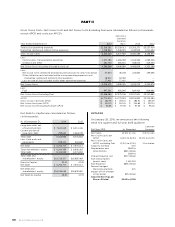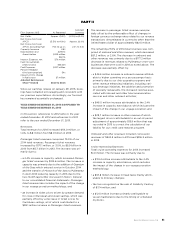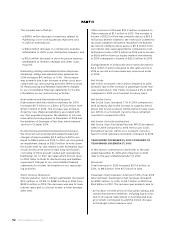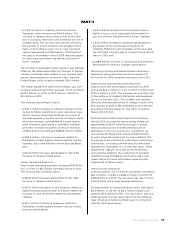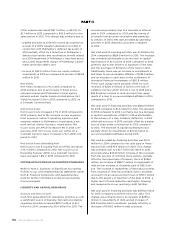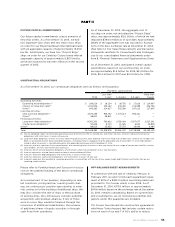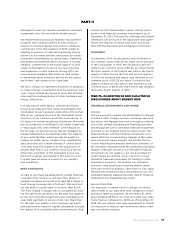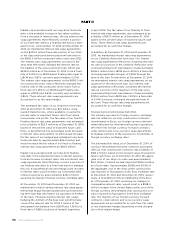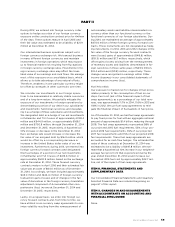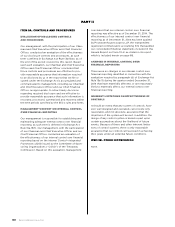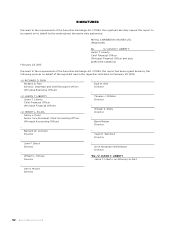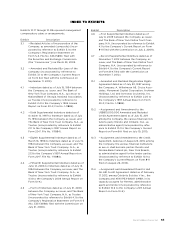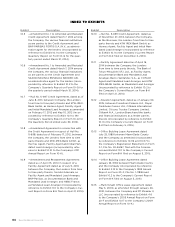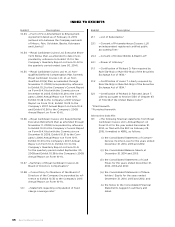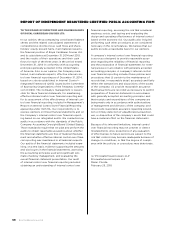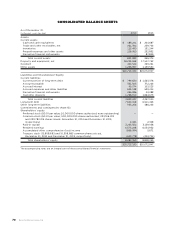Royal Caribbean Cruise Lines 2014 Annual Report Download - page 61
Download and view the complete annual report
Please find page 61 of the 2014 Royal Caribbean Cruise Lines annual report below. You can navigate through the pages in the report by either clicking on the pages listed below, or by using the keyword search tool below to find specific information within the annual report.
60 Royal Caribbean Cruises Ltd.
PART II
ITEM 9A. CONTROLS AND PROCEDURES
EVALUATION OF DISCLOSURE CONTROLS
AND PROCEDURES
Our management, with the participation of our Chair-
man and Chief Executive Officer and Chief Financial
Officer, conducted an evaluation of the effectiveness
of our disclosure controls and procedures, as such
term is defined in Exchange Act Rule 13a-15(e), as of
the end of the period covered by this report. Based
upon such evaluation, our Chairman and Chief Executive
Officer and Chief Financial Officer concluded that
those controls and procedures are effective to pro-
vide reasonable assurance that information required
to be disclosed by us in the reports that we file or
submit under the Exchange Act is accumulated and
communicated to management, including our Chairman
and Chief Executive Officer and our Chief Financial
Officer, as appropriate, to allow timely decisions
regarding required disclosure and are effective to
provide reasonable assurance that such information is
recorded, processed, summarized and reported within
the time periods specified by the SEC’s rules and forms.
MANAGEMENT’S REPORT ON INTERNAL CONTROL
OVER FINANCIAL REPORTING
Our management is responsible for establishing and
maintaining adequate internal control over financial
reporting, as such term is defined in Exchange Act
Rule 13a-15(f). Our management, with the participation
of our Chairman and Chief Executive Officer and our
Chief Financial Officer, conducted an evaluation of
the effectiveness of our internal control over financial
reporting based on the Internal Control—Integrated
Framework (2013) issued by the Committee of Spon-
soring Organizations (“COSO”) of the Treadway
Commission. Based on this evaluation, management
concluded that our internal control over financial
reporting was effective as of December 31, 2014. The
effectiveness of our internal control over financial
reporting as of December 31, 2014 has been audited
by PricewaterhouseCoopers LLP, the independent
registered certified public accounting firm that audited
our consolidated financial statements included in this
Annual Report on Form 10-K, as stated in its report,
which is included herein on page 68.
CHANGES IN INTERNAL CONTROL OVER
FINANCIAL REPORTING
There were no changes in our internal control over
financial reporting identified in connection with the
evaluation required by paragraph (d) of Exchange Act
Rule 13a-15 during the quarter ended December 31,
2014 that have materially affected, or are reasonably
likely to materially affect, our internal control over
financial reporting.
INHERENT LIMITATIONS ON EFFECTIVENESS OF
CONTROLS
It should be noted that any system of controls, how-
ever well designed and operated, can provide only
reasonable, and not absolute, assurance that the
objectives of the system will be met. In addition, the
design of any control system is based in part upon
certain assumptions about the likelihood of future
events. Because of these and other inherent limita-
tions of control systems, there is only reasonable
assurance that our controls will succeed in achieving
their goals under all potential future conditions.
ITEM 9B. OTHER INFORMATION
None.


